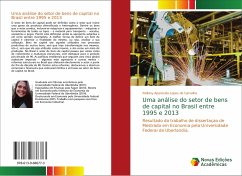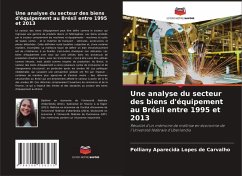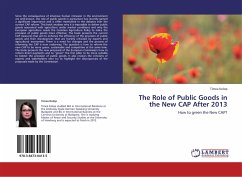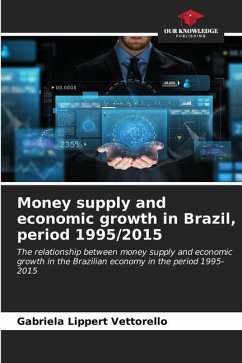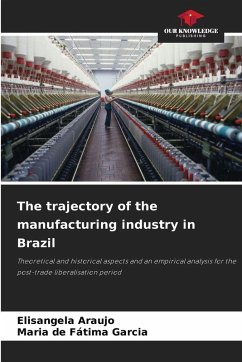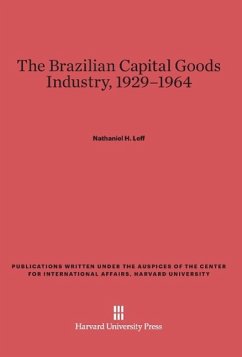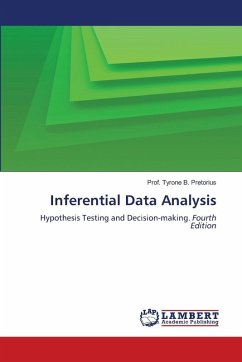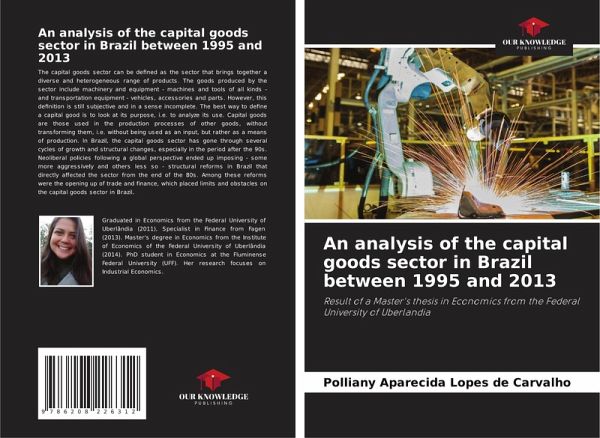
An analysis of the capital goods sector in Brazil between 1995 and 2013
Result of a Master's thesis in Economics from the Federal University of Uberlandia
Versandkostenfrei!
Versandfertig in 6-10 Tagen
36,99 €
inkl. MwSt.

PAYBACK Punkte
18 °P sammeln!
The capital goods sector can be defined as the sector that brings together a diverse and heterogeneous range of products. The goods produced by the sector include machinery and equipment - machines and tools of all kinds - and transportation equipment - vehicles, accessories and parts. However, this definition is still subjective and in a sense incomplete. The best way to define a capital good is to look at its purpose, i.e. to analyze its use. Capital goods are those used in the production processes of other goods, without transforming them, i.e. without being used as an input, but rather as ...
The capital goods sector can be defined as the sector that brings together a diverse and heterogeneous range of products. The goods produced by the sector include machinery and equipment - machines and tools of all kinds - and transportation equipment - vehicles, accessories and parts. However, this definition is still subjective and in a sense incomplete. The best way to define a capital good is to look at its purpose, i.e. to analyze its use. Capital goods are those used in the production processes of other goods, without transforming them, i.e. without being used as an input, but rather as a means of production. In Brazil, the capital goods sector has gone through several cycles of growth and structural changes, especially in the period after the 90s. Neoliberal policies following a global perspective ended up imposing - some more aggressively and others less so - structural reforms in Brazil that directly affected the sector from the end of the 80s. Among these reforms were the opening up of trade and finance, which placed limits and obstacles on the capital goods sector in Brazil.





